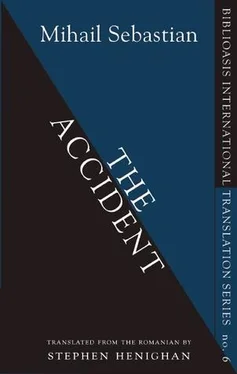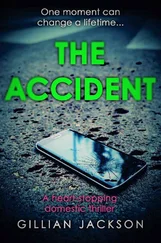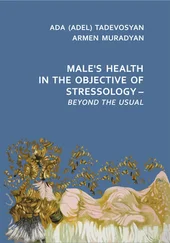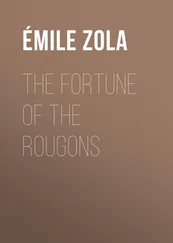Their departure for Braşov was becoming a real expedition. “Is it that dangerous?” Paul asked.
“In winter in the mountains you never know what’s going to happen.”
They had barely set out when Hagen overtook them from behind.
“Gunther wonders where you’re thinking of sleeping in Braşov this evening.”
“In a hotel, of course.”
“He doesn’t think you’ll find a room. He told you to give me this.”
It was an envelope on which Paul read a woman’s name — Frau Adelle Bund — and an unknown street: Strada Prundului, 26 .
“It’s my house,” Hagen said. “I wouldn’t advise you to go there. It’s an old house and it’s far away. But if you can’t find a room anywhere, don’t sleep in the street.”
He spoke with ill will. It was clear that this turn of events did not please him.
Nora made an effort to placate him. “We thank you, but I think we’ll leave Frau Adelle in peace. It can’t not be possible to find a room in town.”
He didn’t look entirely placated. “Have a good trip,” he said.
He looked after them for a long time as they headed off.
They made a quick stop at the SKV chalet to consult the map. From there, they set off on a trail that was unknown to both of them. The run started behind the chalet. Gunther had drawn it in a meandering blue line that descended towards a circle that was coloured green. Inside this circle he had written in small block letters: Ruia .
Nora let Paul go ahead in a snowplow.
“Don’t leave the snowplow for even a second,” she told him.
“Whatever you do, if you’re not going at high speed, nothing serious will happen.”
Paul set off in a strained silence. He clutched the poles’ handgrips with closed fists. He had the impression that his whole effort was concentrated there, in the joints of his hands. His knees were bent as though he were preparing for a jump. His skis slid ahead of him, made heavier by his braking.
He held his breath as he waited for the first turn. His head was bowed between his shoulders, but his attention was locked on the point ahead of him, coming closer every second, where the trail turned to the left. He felt his temples throbbing. Now, now, now… He pushed the tip of his right ski ahead of the other one, then leaned with all of his weight towards the left. The snowplow opened to a enormously wide angle. The turn was completed gradually, like the gliding wheeling of a bird on unmoving wings. The left ski, which for a second supported his entire weight, skidded around with a harsh scraping sound, then, in the next second, his equilibrium returned.
“Bravo! Very good,” he heard Nora shouting from behind him. He didn’t have time to reply to her, nor to recover his breath. Ahead of him were several metres of straight downhill after which, ominously, there was another turn, this time to the right. He made his turn a little less slowly, a little less raggedly, than the first time.
He felt himself coming out of the curve at greater speed. Let’s not go overboard , he thought. He clutched the poles’ handgrips, determined to resist. He let his weight fall on both skis and opened his snowplow wider. He went into the next turn with all the resistance he could muster. His arms, his knees, his ankles, strained to stop, to brake, his onward motion. The skis stalled for a moment in the middle of the turn, as if they had been locked into place, but then they pulled out of it and, in a moment of release, set off downhill.
His speed increased. Paul opened his snowplow wider. The tips of his skis almost knocked against each other, while their back ends slid apart until they spanned the breadth of the track. Yet he felt the wind beating more sharply against his cheeks. He didn’t understand what was going on. The snowplow no longer helped him at all. It was like a leaking brake that no longer transmitted the driver’s commands. The curves became more and more frequent, and even faster. He came out of the turns now in a kind of automatic twisting of his body. Paul felt himself jerked now to the right, now to the left. At each new curve he had the impression that he was about to be hurled onto the packed snow of the trail, but at the last moment an unexpected strength would lift him out of the fall and set him upright again on his skis. Not a single thought was in his head: his whole being was in a tumult, overridden, as if by a shout, by the will to stay on his feet.
In front of him, at a distance he couldn’t judge — was it far away? close up? — a tree branch heaved into sight, blocking his path. He crouched down on his skis, closed his eyes and plunged forward without paying attention, even in that same second, to whether he had struck it, whether he had fallen. His skis dashed ahead now — as though on their own, detached from his body — into a new curve that pitched him to the right, but by a miracle in that instant the trail came out of the woods and widened into a great expanse of white. He didn’t realize what was happening. He had the feeling that he was flying over a level surface. The wind, which until now had been gusting violently into his face, seemed to subside. The edges of his skis no longer cut obliquely into the snow, but rather settled, as if floating, with the length of their undersides flat against the snow.
Once again Paul tried to recover his lost movements. To his amazement, his skis responded to him. The snowplow opened with ease, and, during a final turn to the right, the two skis had stopped, unresisting, one alongside the other.
“We’re in Ruia,” Nora shouted from far away.
She came towards him, swinging easily on her skis, as though she were skating.
“It went really well, Paul. If we keep going like that all the way down, we’ll reach Braşov in daylight.”
“If we keep going like that all the way down, I’ll end up flat on the trail, hanging from a tree or falling over a precipice.”
Nora thought he was joking. He tried to explain to her the sensation of nothingness from which he had just emerged. He felt as though he were on the outer edges of human life.
“Well, the trail back is very short,” Nora laughed. “Do you know how long it took us to get here from up there? Four minutes.”
He couldn’t believe it. As in those fleeting dreams that make us traverse the entire space of a life in a few seconds, Paul had the feeling that he was going around and around in an endless race.
“I assure you that you’re exaggerating, Paul. Everything went really well. I followed you the whole time. Your turns were steady, your speed was under control. A little fast sometimes, but under control.”
“Under whose control? I felt like I was in a whirlpool, a chaos. I couldn’t see anything.”
“Because the light was too strong. Skiing is an enormous light; you said it yourself. Your eyes have to get used to it.”
They didn’t have much time to spend in Ruia. They hadn’t foreseen this break. Before leaving, however, they took a look in the direction of the broad clearing, which they had just crossed without observing it. Gripped on all sides by woods, Ruia, with its pristine snows, was as white as a frozen alpine lake.
Gunther’s map showed the trail winding more from here on. The little blue-and-white signs sprang up at regular intervals, spaced at equal distances, like coloured windows cut into the bark of the fir trees. The trail descended in a gentle slope devoid of sudden changes of direction. The curves were wide and visible from far away. Paul waited for them with the same attentive concentration. He threw his whole body into braking his speed, as though a single movement had passed through him from his shoulders to his ankles. Then, in the instant in which the skis slipped out of the braking posture, he had a sudden sensation of release.
Читать дальше












